
International arrivals into Asia Pacific continue to exceed the global average
Foreign arrivals into Asia Pacific destinations continued to grow at better than the global average in 2017, reaching a record volume high of more than 646 million arrivals relative to 2016.
According to the Annual Travel Monitor 2018 Final Edition (ATM) released by the Pacific Asia Travel Association (PATA) today, international visitor arrivals (IVAs) into 47 destinations in Asia Pacific covered in this report increased by 5.7 percent and added close to 35 million additional arrivals to the collective foreign inbound count into Asia Pacific in 2017.
In percentage increase terms between 2016 and 2017, the Pacific had the strongest annual increase at 5.9% year-on-year, followed by the Americas at 5.8%, while Asia kept pace with the Asia Pacific average of 5.7%.
By annual increase in the absolute volume of foreign arrivals however, these positions were reversed with Asia receiving close to 25 million additional foreign arrivals between 2016 and 2017, followed by the Americas with a gain of almost 8.6 million and the Pacific with around 1.4 million additional foreign arrivals received over that period.
Within the Americas, Central America showed the strongest incremental increase in foreign arrivals between 2016 and 2017, capturing 50.5% of the 8.577 million increase into the Americas over that period.
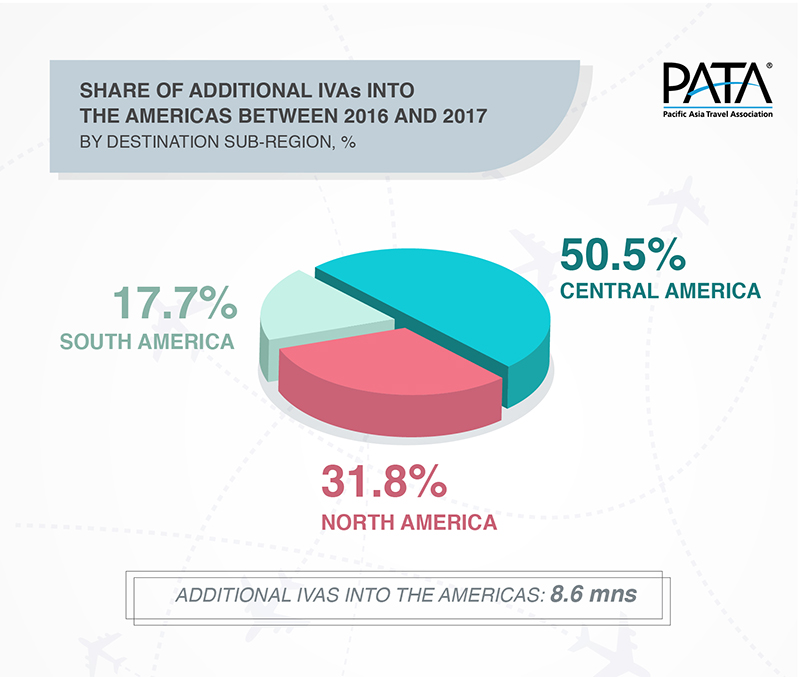
Across Asia it was Southeast and West Asia that each captured the largest proportion of additional foreign arrivals into Asia between 2016 and 2017.
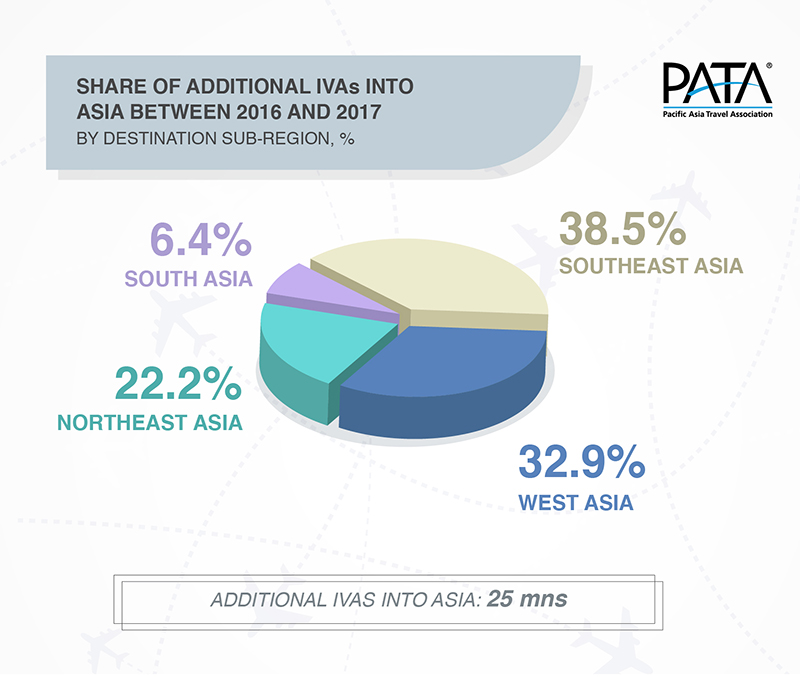
While in the Pacific, Oceania received more than half of the additional foreign arrivals into the region, followed by Polynesia.
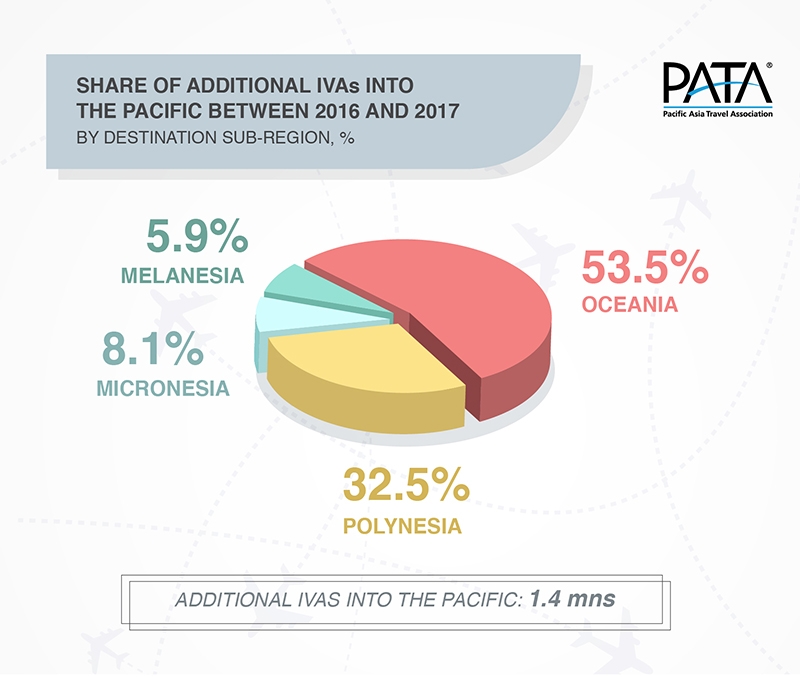
At the individual Asia Pacific destination level, destinations with the strongest annual percentage growth rates in 2017 ranked as:
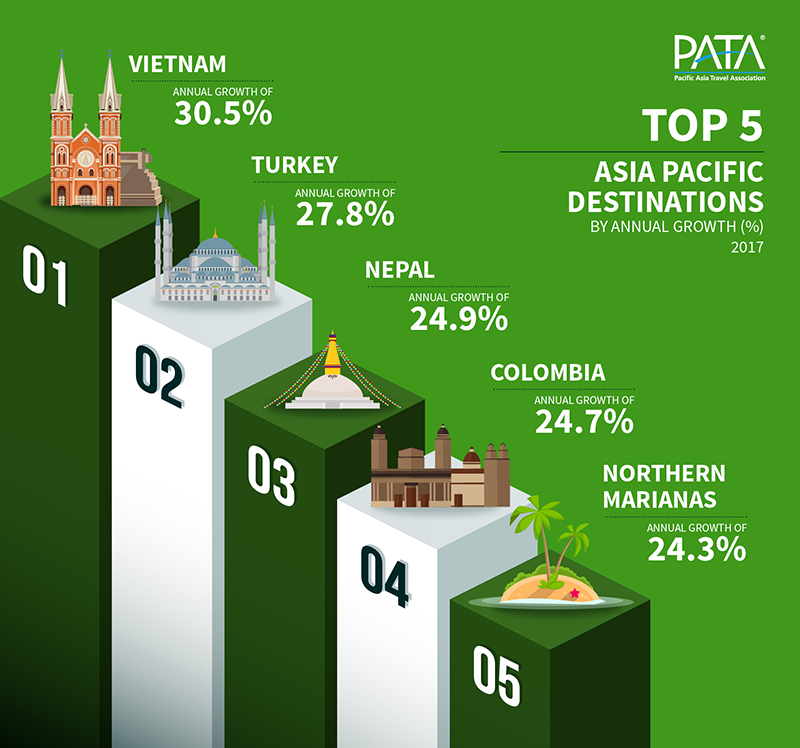
All told more than 40% of the 47 destinations covered in this report had annual growth rates in excess of 10%; another 28% had annual growth rates in excess of five percent.
For sheer annual volume increase between 2016 and 2017, the strongest Asia Pacific performers were ranked as:
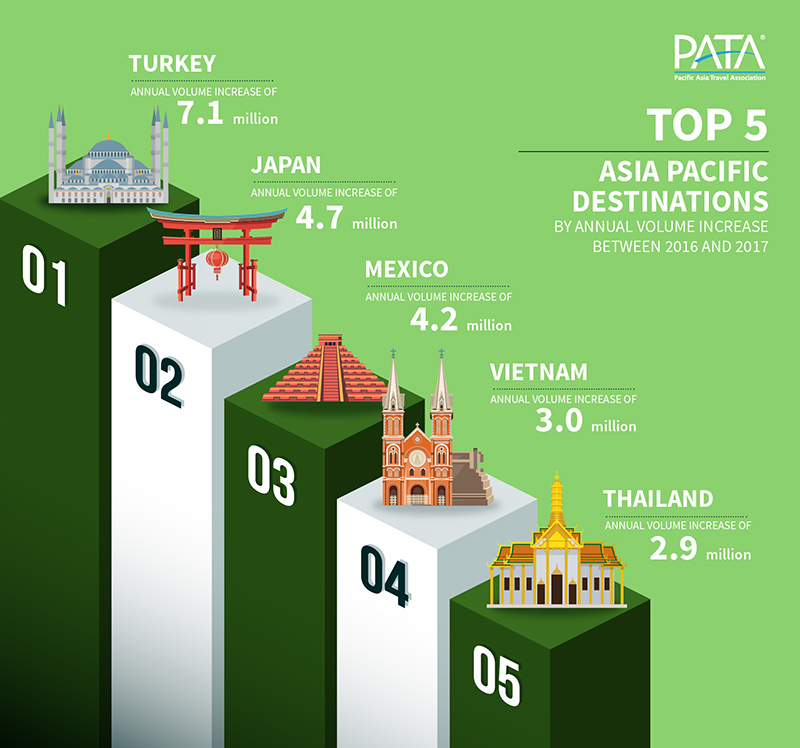
Of the destinations covered in this report, more than a quarter had annual volume increases of more than one million each, while close to 15% had between half a million and one million apiece.
The strong collective performance of Asia Pacific destinations in 2017 appears to be continuing into 2018 as well. As Dr. Mario Hardy, the CEO of PATA pointed out, “Early results for 2018 show a collective annual increase in foreign arrivals into Asia Pacific destinations of 8.7%, adding more than 25 million additional arrivals to the total inbound count during the first periods of 2018 relative to the same period of last year.”
Thirty-six Asia Pacific destinations had released year-to-date 2018 data on foreign arrivals at the time of preparing the Annual Tourism Monitor for 2018 and these are covered in some detail through the body of the report.
The strongest early performances are seen in a number of destinations including:
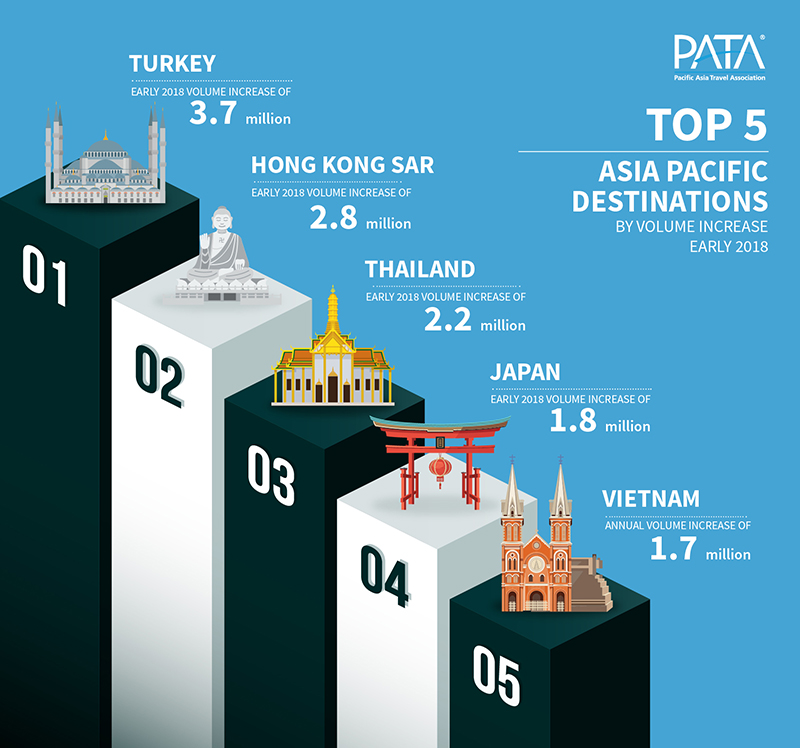
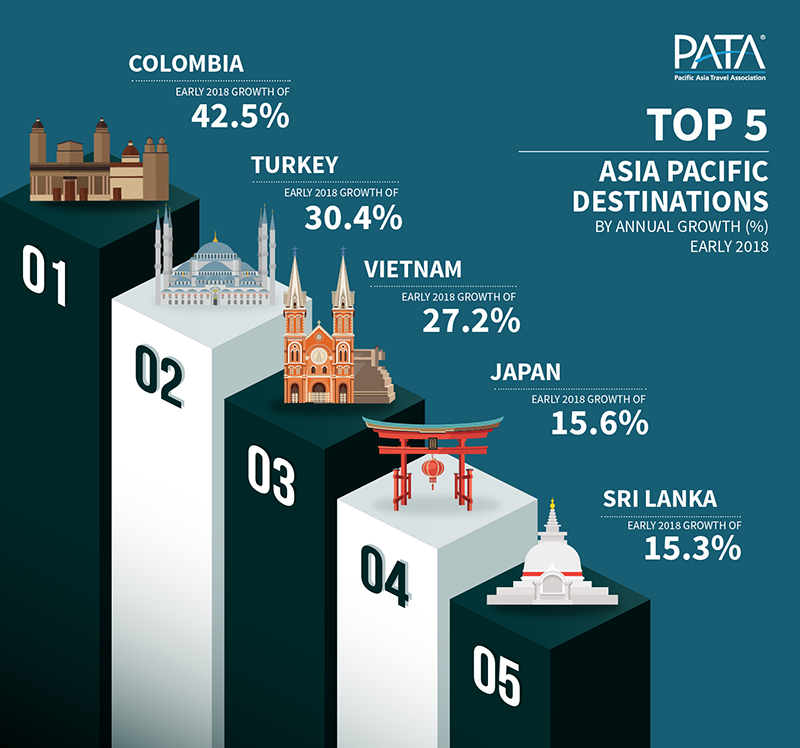
Furthermore, one quarter of these destinations had already posted volume increases of more than one million foreign arrivals in early 2018, relative to the same periods of 2017. Included amongst these are:
“In general terms, the volume of foreign arrivals into most Asia Pacific destinations now needs to be managed in terms of distribution across the destination, especially with growth rates remaining relatively high,” adds Dr. Hardy. “This includes shifting our focus from just the volume of arrivals to other performance metrics including length of stay and yield as primary indicators, along with developing a better and deeper understanding impacts of tourism on the environment and society at all levels, especially if we as a responsible economic sector wish to remain sustainable and therefore viable into the future.”
“It is not only the international travel flows that have an impact either. The domestic demand for new travel experiences is gathering momentum in many destinations as well, and when coupled with international visitor flows, that creates a very powerful dynamic. It is incumbent on us all to ensure that we can properly harness and manage that power or else risk losing those very attributes that drive visitor interest in the first place.”
